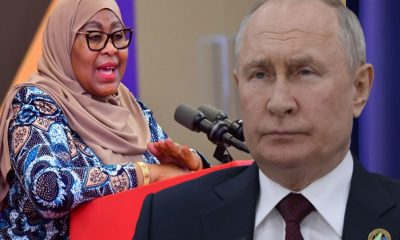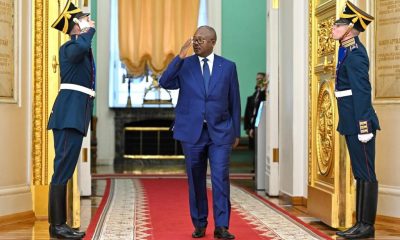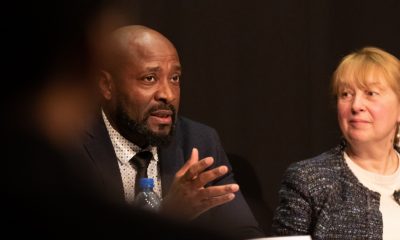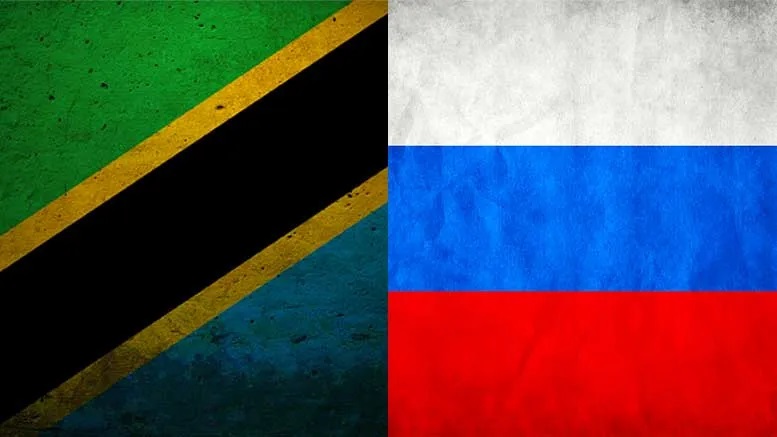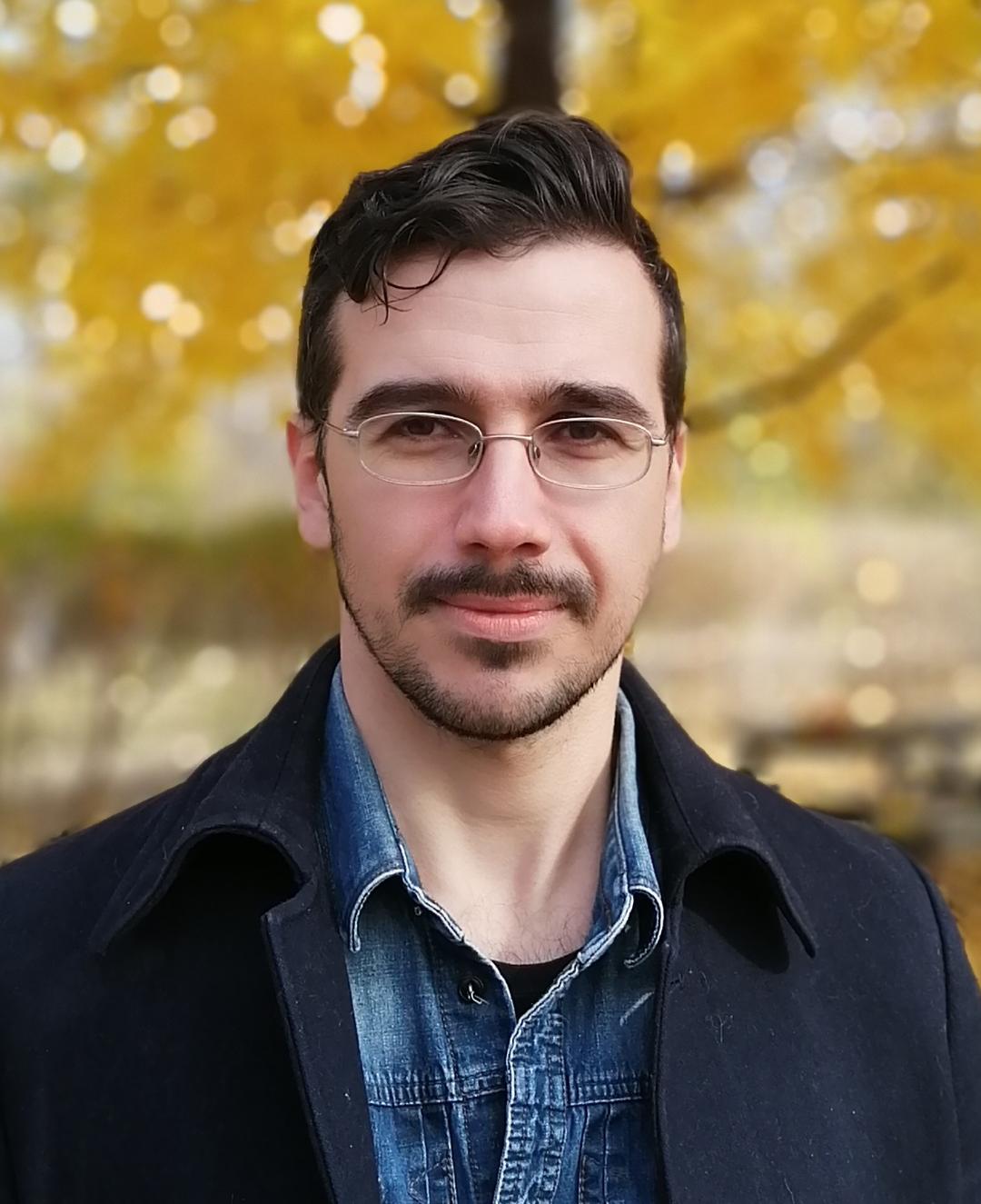World
Are China and Russia Giant Competitors in Africa?
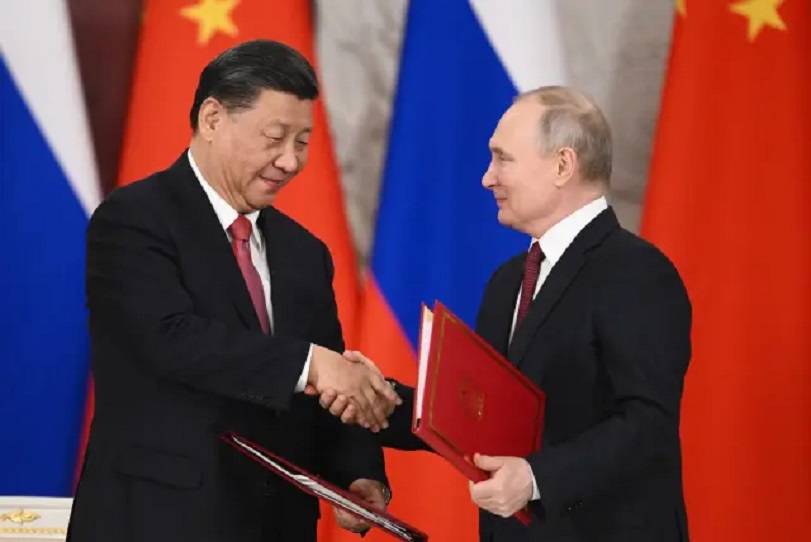
By Kestér Kenn Klomegâh
Russia has to acknowledge the difference between illusions and realities in the geopolitical games. It has to recognize and thoroughly analyse and manage the current economic rivalry and competition among foreign players across Africa. It has, over these several years, been taking steps to uplift or broaden economic cooperation inside Africa.
In late June, Interfax News Agency reported, sourcing Roscosmos Head Yury Borisov, that Russia would sign a full-scale space cooperation agreement with Africa during the July summit. “We are touring African states ahead of this forum (Russia-Africa) and have agreed with the colleague from the Egyptian agency to draft a full-scale agreement on a broad range of possible relations in the space industry,” the press service quoted Borisov as saying.
In another related development, Russian giant Gazprom has shown a preparedness to help African countries develop gas production. It indicated this interest several years ago; Gazprom officials have visited several African countries in connection with this energy sector. It has signed an agreement referred to as NiGaz with the Federal Republic of Nigeria. The title of the project offered absolutely nothing, no gas production until today in this West African country.
Research shows that Nigaz was established in 2009 as a joint venture between the Russian gas company Gazprom EP International B.V. (100% affiliate of OAO Gazprom) and the Nigerian National Petroleum Corporation. It planned to invest $2.5 billion to build oil and gas refineries, pipelines and gas power stations in Nigeria. Launching the company, Dmitry Medvedev, then president, announced his intention to form a major energy partnership with Nigeria at a meeting in Abuja with Nigerian president Umaru Yar’Adua.
Gazprom is prepared to help develop natural gas production and use in African countries, the Russian gas giant said at an international roundtable in Johannesburg on the benefits of gas for consumers and the economy. The roundtable was attended by representatives of business communities, experts and reporters from nine African countries, including Algeria, Angola, Ghana, Egypt, Kenya, Mozambique, Nigeria, Tanzania and South Africa.
“Taking into account the South African government’s policy to decarbonize the economy, gas could become an effective means of meeting demand for energy since renewable energy sources cannot ensure uninterrupted supplies. In this regard, I believe that Gazprom’s experience implementing liquefied natural gas and gas pipeline construction projects could be of interest to South African partners,” Russian Ambassador Ilya Rogachev was quoted as saying in the press release.
“Greater use of natural gas will help Africa solve a whole range of problems, from economic to social and environmental. We believe that Africa should fully discover the advantages of this fuel for itself,” the head of Gazprom’s foreign economic activities department, Dmitry Khandoga, said.
“We see potential in cooperation with African countries and can offer our unique experience and technological know-how. Gazprom is open to discussing constructive and mutually beneficial proposals that would facilitate economic development and improve the lives of people in African countries,” Khandoga said.
The chairman of the African Energy Chamber, NJ Ayuk, said more than 600 million people in Sub-Saharan Africa do not have electricity, and 900 million people, most of them women, do not have access to clean cooking technologies. Either they do not exist, or they are insufficient, and solving this problem alone is sufficient reason to use the continent’s rich gas reserves, he said.
In Africa, which needs industrialization, affordable and abundant natural gas will help create many new jobs and opportunities for capacity building, economic diversification and growth, Ayuk said.
The participants discussed the role of natural gas in Africa’s sustainable development. It was noted that the availability of energy remains a problem in most countries on the continent, and its consumption is several times lower than the global average.
Meanwhile, experts estimate that Africa will account for more than 60% of global population growth by 2050. Along with urbanization in the region, there is expected to be substantial economic growth, which will be accompanied by a twofold increase in energy consumption. Demand for natural gas is expected to grow by 150%.
Increasing natural gas production will help meet the growing energy demand, roundtable participants said. “However, at present most of the gas extracted here is exported. For example, one in three residents of Nigeria, Africa’s largest LNG exporter, does not have access to energy. Therefore, it is the accessibility of energy for industry and households that will be of foremost importance for Africa’s dynamic development,” Gazprom said.
With the help of China, a number of African countries, through bilateral agreements, now have the capacity to assemble, integrate and test satellites. This will enable them to position themselves as the continent’s space industry powerhouse. Quiet recently, Egypt took delivery of two China-funded prototypes for the MisrSat-2 satellite project on June 25.
The satellites will be assembled and tested at a centre, also financed by China, at the Egyptian Space Agency near the country’s new capital city. China provided a $74 million grant for the project, as well as $68 million for the satellite assembly, integration, and test centre to be built.
Over the past three months, engineers from Egypt and the China Aerospace Science and Technology Corporation have been conducting tests on three MisrSat-2 satellite models – two prototypes and a flight model.
Chinese ambassador to Egypt, Liao Liqiang, said Egypt would be the first African nation that could assemble, integrate and test satellites. “Egypt is the first country to which China handed over the satellite cooperation project outside China, and the first country with which China cooperated to complete the large-scale trial operation of the satellite outside China,” Liao said at the ceremony to present the grant to the Egyptian government.
Media reports further said that Beijing was keen to work with Egypt to advance cooperation in space and to continue deepening the comprehensive strategic partnership between the two nations. The satellite is expected to be launched from China in October.
Nigerian space scientist Temidayo Oniosun said China had taken a prominent role in partnering with African institutions to develop their space programmes. He said that in addition to Egypt, China had bilateral agreements with 13 other African countries covering space technology, training and ground infrastructure.
“Like other countries such as Russia, the United States and Europe, China is always exploring new business opportunities on the continent,” Oniosun said, adding that the African space industry was growing – generating about $20 billion in annual revenue – and everyone wanted a slice of it. “It is also a critical tool for international diplomacy, and this defines China’s long-term plan on the continent,” he said.
“Competition among key African states ‘racing’ to become leaders in this sector, and competition among external players – especially China and France – to secure contracts in Africa,” noted President Abdel-Fattah el-Sisi. In fact, Egypt is strategically placed to be a centre for satellite assembly since it has access to Europe and Africa. It is also bordered by the Mediterranean Sea to the north and the Red Sea to the East.
China had 28 space agreements with African nations – the most of any country – spanning everything from earth observation and capacity development to satellite navigation, communication and astronomy. It boosts cooperation on space technology, promotes Africa’s space infrastructure development, and uses the space industry to drive social development and improve people’s living standards.
Last year the South African Institute of International Affairs, a reputable policy think tank, said in its report that “Russia looks more like a ‘virtual great power’ than a genuine challenger to European, American and Chinese influence.”
It also highlighted the fact that Russia is using Africa as a geopolitical playing field, soliciting support for invading neighbouring Ukraine, and warned African leaders that Russia might not, in practical terms, deliver on its pledges and implement promptly bilateral agreements.
Professors Irina O. Abramova and Leonid L. Fituni, both from the Institute for African Studies under the Russian Academy of Sciences, in a report last year, reminded the authorities, who are squeezed between illusions and realities, about their policy ambitions in Africa. And that high-ranking Russian officials need to change their approach towards Africa.
The fact that African countries consider Russia a reliable economic partner, and it is necessary to interact with African public and private businesses on a mutually beneficial basis. In this regard, Russian initiatives should be supported by real steps and not be limited to verbal declarations about the “return of Russia to Africa,” especially after the Sochi gathering, which was described as very symbolic, they wrote in the report.
The first symbolic first summit at the Black Sea city of Sochi, indeed, fêted heads of state from 43 African countries and showcased Moscow’s great power ambitions. At the tail-end of it, both Russia and Africa adopted a joint declaration, a comprehensive document that outlines the key objectives and necessary tasks to raise assertively the entire relations to a new qualitative level. Several agreements were also signed with African countries. And yet Russian officials are desirously looking to sign more new agreements during the next summit.
And, of course, this late July, African leaders and corporate businesses will be heading to St. Petersburg, the second largest city in Russia, primarily to discuss ways to end the Russia-Ukraine crisis and its related adverse impact on Africa’s economy and across the world. Secondly, they will be looking strategically to negotiate for “no-cost delivery” of grains and wheat and, most possibly, access to advanced technology and investment in the economic sectors. Third, close-ups of the two-day gathering with memorable group photographs.
What do potential external players need? What does Africa Want from foreign countries? Beyond signing bilateral agreements, what next? With the emerging challenges and geopolitical changes in this evolving multipolar world, it is certainly true that Russia has to take practical steps towards interconnecting, to build better multi-dimensional relationships with Africa.
In the 21st century, Africa does not need anti-Western rhetoric. It has to address sustainable development goals, especially rising youth unemployment, food security, energy deficits, and improved infrastructure. Simply anti-Western slogans will never facilitate its economic development. The best way to fight ‘neo-colonialism’ is to invest in competitive sectors where the United States and Europe are showing similar interests.
On a broader scale, the African Union (AU), an organization which unites sovereign states across Africa, also needs to adopt a new policy strategy with Russia. In reality, and taking cognizance of the huge untapped natural resources, and combined with the available human capital, Africa’s sectors are presently crying for drastic economic transformation to take care of the increasing demands of the estimated 1.4 billion population.
World
African Visual Art is Distinguished by Colour Expression, Dynamic Form—Kalalb

By Kestér Kenn Klomegâh
In this insightful interview, Natali Kalalb, founder of NAtali KAlalb Art Gallery, discusses her practical experiences of handling Africa’s contemporary arts, her professional journey into the creative industry and entrepreneurship, and also strategies of building cultural partnership as a foundation for Russian-African bilateral relations. Here are the interview excerpts:
Given your experience working with Africa, particularly in promoting contemporary art, how would you assess its impact on Russian-African relations?
Interestingly, my professional journey in Africa began with the work “Afroprima.” It depicted a dark-skinned ballerina, combining African dance and the Russian academic ballet tradition. This painting became a symbol of cultural synthesis—not opposition, but dialogue.
Contemporary African art is rapidly strengthening its place in the world. By 2017, the market was growing so rapidly that Sotheby launched its first separate African auction, bringing together 100 lots from 60 artists from 14 foreign countries, including Algeria, Ghana, Mali, Nigeria, Senegal, and others. That same year during the Autumn season, Louis Vuitton Foundation in Paris hosted a major exhibition dedicated to African art. According to Artnet, sales of contemporary African artists reached $40 million by 2021, a 434% increase in just two years. Today, Sotheby holds African auctions twice a year, and in October 2023, they raised $2.8 million.
In Russia, this process manifests itself through cultural dialogue: exhibitions, studios, and educational initiatives create a space of trust and mutual respect, shaping the understanding of contemporary African art at the local level.
Do you think geopolitical changes are affecting your professional work? What prompted you to create an African art studio?
The international context certainly influences cultural processes. However, my decision to work with African themes was not situational. I was drawn to the expressiveness of African visual language—colour, rhythm, and plastic energy. This theme is practically not represented systematically and professionally in the Russian art scene.
The creation of the studio was a step toward establishing a sustainable platform for cultural exchange and artistic dialogue, where the works of African artists are perceived as a full-fledged part of the global cultural process, rather than an exotic one.
To what extent does African art influence Russian perceptions?
Contemporary African art is gradually changing the perception of the continent. While previously viewed superficially or stereotypically, today viewers are confronted with the depth of artistic expression and the intellectual and aesthetic level of contemporary artists.
Portraits are particularly impactful: they allow us to see not just an abstract image of a “continent,” but a concrete personality, character, and inner dignity. Global market growth data and regular auctions create additional trust in African contemporary art and contribute to its perception as a mature and valuable movement.
Does African art reflect lifestyle and fashion? How does it differ from Russian art?
African art, in my opinion, is at its peak in everyday culture—textiles, ornamentation, bodily movement, rhythm. It interacts organically with fashion, music, interior design, and the urban environment. The Russian artistic tradition is historically more academic and philosophical. African visual art is distinguished by greater colour expression and dynamic form. Nevertheless, both cultures are united by a profound symbolic and spiritual component.
What feedback do you receive on social media?
Audience reactions are generally constructive and engaging. Viewers ask questions about cultural codes, symbolism, and the choice of subjects. The digital environment allows for a diversity of opinions, but a conscious interest and a willingness to engage in cultural dialogue are emerging.
What are the key challenges and achievements of recent years?
Key challenges:
- Limited expert base on African contemporary art in Russia;
- Need for systematic educational outreach;
- Overcoming the perception of African art as exclusively decorative or ethnic.
Key achievements:
- Building a sustainable audience;
- Implementing exhibition and studio projects;
- Strengthening professional cultural interaction and trust in African
contemporary art as a serious artistic movement.
What are your future prospects in the context of cultural diplomacy?
Looking forward, I see the development of joint exhibitions, educational programs, and creative residencies. Cultural diplomacy is a long-term process based on respect and professionalism. If an artistic image is capable of uniting different cultural traditions in a single visual space, it becomes a tool for mutual understanding.
World
Ukraine Reveals Identities of Nigerians Killed Fighting for Russia

By Adedapo Adesanya
The Ukrainian Defence Intelligence (UDI) has identified two Nigerian men, Mr Hamzat Kazeem Kolawole and Mr Mbah Stephen Udoka, allegedly killed while fighting as Russian mercenaries in the war between the two countries ongoing since February 2022.
The development comes after Russia denied knowledge of Nigerians being recruited to fight on the frontlines.
Earlier this week, the Russian Ambassador to Nigeria, Mr Andrey Podyolyshev, said in Abuja that he was not aware of any government-backed programme to recruit Nigerians to fight in the war in Ukraine.
He said if at all such activity existed, it is not connected with the Russian state.
However, in a statement on Thursday, the Ukrainian Defence released photographs of Nigerians killed while defending Russia.
“In the Luhansk region, military intelligence operatives discovered the bodies of two citizens of the Federal Republic of Nigeria — Hamzat Kazeen Kolawole (03.04.1983) and Mbah Stephen Udoka (07.01.1988),” the statement read.
According to the statement, both men served in the 423rd Guards Motor Rifle Regiment (military unit 91701) of the 4th Guards Kantemirovskaya Tank Division of the armed forces of the Russian Federation.
UDI said that they signed contracts with the Russian Army in the second half of 2025 – the deceased Mr Kolawole on August 29 and Mr Udoka on September 28.
“Udoka received no training whatsoever — just five days later, on October 3, he was assigned to the unit and sent to the temporarily occupied territories of Ukraine,” the report read.
It added that no training records for Mr Kolawole have been preserved; however, it is highly likely that he also received no military training, but his wife and three children remain in Nigeria.
Both Nigerians, the report added, were killed in late November during an attempt to storm Ukrainian positions in the Luhansk region.
“They never engaged in a firefight — the mercenaries were eliminated by a drone strike,” UDI stated, warning foreign citizens against travelling to the Russian Federation or taking up any work on the territory of the “aggressor state”.
“A trip to Russia is a real risk of being forced into a suicide assault unit and, ultimately, rotting in Ukrainian soil,” the statement read.
In an investigation earlier this month, CNN reported that hundreds of African men have been enticed to fight for Russia in Ukraine with the promise of civilian jobs and high salaries. However, the media organisation uncovered that they are being deceived or sent to the front lines with little combat training.
CNN said it reviewed hundreds of chats on messaging apps, military contracts, visas, flights and hotel bookings, as well as gathering first-hand accounts from African fighters in Ukraine, to understand just how Russia entices African men to bolster its ranks.
World
Today’s Generation of Entrepreneurs Value Flexibility, Autonomy—McNeal-Weary

By Kestér Kenn Klomegâh
The Young African Leaders Initiative (YALI) is the United States’ signature step to invest in the next generation of African leaders. Since its establishment in 2010 by Obama administration, YALI has offered diverse opportunities, including academic training in leadership, governance skills, organizational development and entrepreneurship, and has connected with thousands of young leaders across Africa. This United States’ policy collaboration benefits both America and Africa by creating stronger partnerships, enhancing mutual prosperity, and ensuring a more stable environment.
In our conversation, Tonya McNeal-Weary, Managing Director at IBS Global Consulting, Inc., Global Headquarters in Detroit, Michigan, has endeavored to discuss, thoroughly, today’s generation of entrepreneurs and also building partnerships as a foundation for driving positive change and innovation in the global marketplace. Here are the excerpts of her conversation:
How would you describe today’s generation of entrepreneurs?
I would describe today’s generation of entrepreneurs as having a digital-first mindset and a fundamental belief that business success and social impact can coexist. Unlike the entrepreneurs before them, they’ve grown up with the internet as a given, enabling them to build global businesses from their laptops and think beyond geographic constraints from day one. They value flexibility and autonomy, often rejecting traditional corporate ladders in favor of building something meaningful on their own terms, even if it means embracing uncertainty and financial risk that previous generations might have avoided.
And those representing the Young African Leaders Initiative, who attended your webinar presentation late January 2026?
The entrepreneurs representing the Young African Leaders Initiative are redefining entrepreneurship on the continent by leveraging their unique perspectives, cultural heritage, and experiences. Their ability to innovate within local contexts while connecting to global opportunities exemplifies how the new wave of entrepreneurs is not confined by geography or conventional expectations.
What were the main issues that formed your ‘lecture’ with them, Young African Leaders Initiative?
The main issues that formed my lecture for the Young African Leaders Initiative were driven by understanding the importance of building successful partnerships when expanding into the United States or any foreign market. During my lecture, I emphasized that forming strategic alliances can help entrepreneurs navigate unfamiliar business environments, access new resources, and foster long-term growth. By understanding how to establish strong and effective partnerships, emerging leaders can position their businesses for sustainable success in global markets. I also discussed the critical factors that contribute to successful partnerships, such as establishing clear communication channels, aligning on shared goals, and cultivating trust between all parties involved. Entrepreneurs must be proactive in seeking out partners who complement their strengths and fill gaps in expertise or resources. It is equally important to conduct thorough due diligence to ensure that potential collaborators share similar values and ethical standards. Ultimately, the seminar aimed to empower YALI entrepreneurs with practical insights and actionable strategies for forging meaningful connections across borders. Building successful partnerships is not only a pathway to business growth but also a foundation for driving positive change and innovation in the global marketplace.
What makes a ‘leader’ today, particularly, in the context of the emerging global business architecture?
In my opinion, a leader in today’s emerging global business architecture must navigate complexity and ambiguity with a fundamentally different skill set than what was previously required. Where traditional leadership emphasized command-and-control and singular vision, contemporary leaders succeed through adaptive thinking and collaborative influence across decentralized networks. Furthermore, emotional intelligence has evolved from a soft skill to a strategic imperative. Today, the effective modern leader must possess deep cross-cultural intelligence, understanding that global business is no longer about exporting one model worldwide but about genuinely integrating diverse perspectives and adapting to local contexts while maintaining coherent values.
Does multinational culture play in its (leadership) formation?
I believe multinational culture plays a profound and arguably essential role in forming the kind of leadership required in today’s global business environment. Leaders who have lived, worked, or deeply engaged across multiple cultural contexts develop a cognitive flexibility that’s difficult to replicate through reading or training alone. More importantly, multinational exposure tends to dismantle the unconscious certainty that one’s own way of doing things is inherently “normal” or “best.” Leaders shaped in multicultural environments often develop a productive discomfort with absolutes; they become more adept at asking questions, seeking input, and recognizing blind spots. This humility and curiosity become strategic assets when building global teams, entering new markets, or navigating geopolitical complexity. However, it’s worth noting that multinational experience alone doesn’t automatically create great leaders. What matters is the depth and quality of cross-cultural engagement, not just the passport stamps. The formation of global leadership is less about where someone has been and more about whether they’ve developed the capacity to see beyond their own cultural lens and genuinely value differences as a source of insight rather than merely tolerating them as an obstacle to overcome.
In the context of heightening geopolitical situation, and with Africa, what would you say, in terms of, people-to-people interaction?
People-to-people interaction is critically important in the African business context, particularly as geopolitical competition intensifies on the continent. In this crowded and often transactional landscape, the depth and authenticity of human relationships can determine whether a business venture succeeds or fails. I spoke on this during my presentation. When business leaders take the time for face-to-face meetings, invest in understanding local priorities rather than imposing external agendas, and build relationships beyond the immediate transaction, they signal a different kind of partnership. The heightened geopolitical situation actually makes this human dimension more vital, not less. As competition increases and narratives clash about whose model of development is best, the businesses and nations that succeed in Africa will likely be those that invest in relationships characterized by reciprocity, respect, and long-term commitment rather than those pursuing quick wins.
How important is it for creating public perception and approach to today’s business?
Interaction between individuals is crucial for shaping public perception, as it influences views in ways that formal communications cannot. We live in a society where word-of-mouth, community networks, and social trust areincredibly important. As a result, a business leader’s behavior in personal interactions, their respect for local customs, their willingness to listen, and their follow-through on commitments have a far-reaching impact that extends well beyond the immediate meeting. The geopolitical dimension amplifies this importance because African nations now have choices. They’re no longer dependent on any single partner and can compare approaches to business.
From the above discussions, how would you describe global business in relation to Africa? Is it directed at creating diverse import dependency?
While it would be too simplistic to say global business is uniformly directed at creating import dependency, the structural patterns that have emerged often produce exactly that outcome, whether by design or as a consequence of how global capital seeks returns. Global financial institutions and trade agreements have historically encouraged African nations to focus on their “comparative advantages” in primary commodities rather than industrial development. The critical question is whether global business can engage with Africa in ways that build productive capacity, transfer technology, develop local talent, and enable countries to manufacture for themselves and for export—or whether the economic incentives and power irregularities make this structurally unlikely without deliberate policy intervention.
-

 Feature/OPED6 years ago
Feature/OPED6 years agoDavos was Different this year
-
Travel/Tourism10 years ago
Lagos Seals Western Lodge Hotel In Ikorodu
-

 Showbiz3 years ago
Showbiz3 years agoEstranged Lover Releases Videos of Empress Njamah Bathing
-

 Banking8 years ago
Banking8 years agoSort Codes of GTBank Branches in Nigeria
-

 Economy3 years ago
Economy3 years agoSubsidy Removal: CNG at N130 Per Litre Cheaper Than Petrol—IPMAN
-

 Banking3 years ago
Banking3 years agoSort Codes of UBA Branches in Nigeria
-

 Banking3 years ago
Banking3 years agoFirst Bank Announces Planned Downtime
-

 Sports3 years ago
Sports3 years agoHighest Paid Nigerian Footballer – How Much Do Nigerian Footballers Earn


